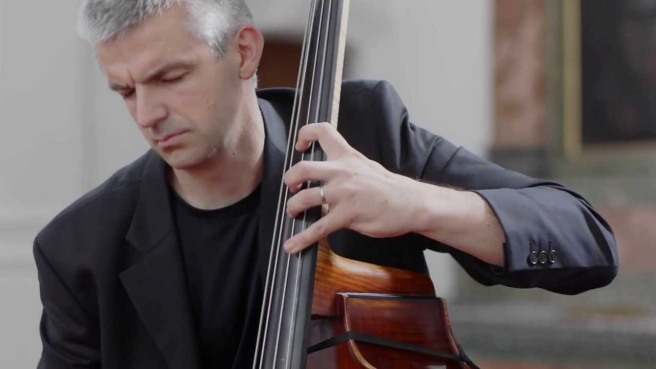I-And so, we are sitting here today with the renowned writer of philosophy, Mr. Friedrich Nieztche. Mr. Nietzche, how are you today? Would you like some water?”
FN-Oh please, sir, Mr. Nietzche was my father’s name. Call me Freddy.”
I-Okay, then. Freddy!
FN-Could I actually have a glass of rootbeer? The studies all show that sasparilla is rife with antioxidants for the overman’s nutrition.
I-That’s all very well, Fred, that’s all very well. We’ll brew you a nice cup of old fashioned rootbeer for you. So, Freddy, you’ve been called – now, pardon me for opening this can of worms so early in our little chat here – you’ve been called arrogant and even preposterous by some of your critics in the literary circle…Now, do these claims seem fair to you, I guess I would ask you: what would you say to these people?
FN-Well, first and foremost, sir, I would say that every claim has some context to it. This claim, too, has context. With that in mind, I think it would be preposterous to call them out without knowing said context. Basically, I would have to ask them what they meant.
I mean, wouldn’t you want to know too, if you were called preposterous? Verily, those who are wisest know everything. And to know everything is a great burden. Everything hidden and invisible is now visible, which is both beautiful and an ugly truth-a horrible burden to bear. I would still advocate for knowledge, even if the truth be hard to bear. Such is the will of the overman. Thus spoke me, just now – ah! Could you put some ice in that? Thanks so much.
I-Well, Mr. Nietzche, I would certainly want to have the context told to me, ifI was called arrogant and outlandish, yes. Your language in your book,.the book for None and All, as you subtitled it: Thus Spoke Zarathustra – seems to use metaphor to the extreme, so much so, that to some people, it would go over their heads and make them seems like they’re reading an allegorical sort of poem. Tell me, Mr. Nietzche, were you intending to confuse your readers with poetic language?
FN-Please, call me Freddy. No, not at all! I would say that my allegorical language, as you call it, is a mechanism to make my readers undertand the conntent even more. You see, this book was subtitled None and All because it is indeed a book for all. Or none, if no one has the patience to read it. If I ommitted the imagistic quality of the language and simply wrote in abstract conceptual ideas, only a select few would be able to read the book, and that, I do not want. Plus, all philosophers think in images. It’s not only in our blood, but we understand that images are the most powerful form of word, that a picture is worth a thousand, nay, a million words, and that all people are poets first and analyzers second.
I-Well, we certainly appreciate the images that you have in the book, whether we understand the concepts alluded to or not. A lot of them are very, very beautiful.
I want to talk a little about your conception of women in Zarathustra, Freddy. To some in the 21sat century, the remarks you made about women would seem sexist, mysoginistic, and some are even comparing them to a certain presidential candidate’s own views on women.
FN-Now, see, I think that’s a little unfair. And here’s why: when Donald Trump calls his own daughter a “piece of ass” and says he might want to date a girl like her, this has no context whatsoever, and has no frame of reference besides his own perverted state of mind. When Zarathustra speaks of women being “incapable of friendship”, but only capable of love, and are merely “cats and birds”, or at best, “cows”, he will only say such words with a meaning or purpose or context behind them. It is a complex, intricate context. And no, the context is not: women are cows because they look like them, or are passive and mute. In this particular speech of Zarathustra, On the Friend, there is a deeper complexity to what he is saying. Plus, I was born in a time where the social mores differed from those of today. But the Donald says his daughter is a”piece of ass” most likely because deep down inside, he thinks his daughter is hot. And that’s all there is to that.
I- (Laughing) Certainly bold words need to have some reasoning behind them, especially if they will spark controversy, and if one says something, they better back it up with facts or at least context. As always, Freddy, your words incite passion and curiosity, and so do your words on the air, thank you so much for being here. Your time is very much appreciated.
FN-Thank you so much for having me, Willie.
I-So, that was Mr. Friedrich Nietzche on his book for None and All, Thus Spoke Zarathustra. Coming up next, here is a tune by A Tribe Called Quest. They have a new album coming out, the first one they’ve released in 19 years! I recommend listening to these guys if you love the classic gold oldies hip-hop. Once again, I’m William “Willie” Hanslick, I hope you tune in next time to Willie’s Cafe on 107.5, The End in Sacramento, 103.5 the Bomb in Salinas, and V101.1 in San Francisco, this is your place for Non-Profit radio and defineitely not all the greatest pop singles of the 21st century, ad-nauseum. We’re coming back after some short messages with the one and only Malcolm X, don’t you touch that dial!

